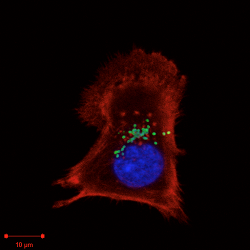The cell biology of obligate intracellular bacteria
General audience summary:
Obligate intracellular bacteria have evolved to live in intimate proximity with eukaryotic host cells without being destroyed by them. By studying this interface, we can gain fundamental insights into the biology of both prokaryotic cells and eukaryotic cells, as well as the interactions between them. Obligate intracellular bacteria are also clinically important, being the causative agents of numerous human and animal diseases. My lab studies the fundamental biology of obligate intracellular bacteria with a particular focus on Orientia tsutsugamushi, causative agent of the life-threatening human disease scrub typhus that is endemic in many parts of Asia. Our studies range from genomics and bacterial physiology through to the intracellular infection cycle and mechanisms of pathogenesis. Through our long-standing work in Southeast Asia, we aim to apply new scientific insights into Orientia tsutsugamushi to the development of improved diagnostics and treatments for scrub typhus.
Strategic CIMR themes: intracellular infections, membrane trafficking
Funding: Wellcome Trust
Research Group members: Panjaporn Chaichana, Frances Aylward, Owen Somhorst, Beth Harris, Rachel Jackson
In Bangkok: Oakem Kyne, Wipoo Prasitwuttisak, Naphat Satapoomin, Chitrasak Kullapanich




